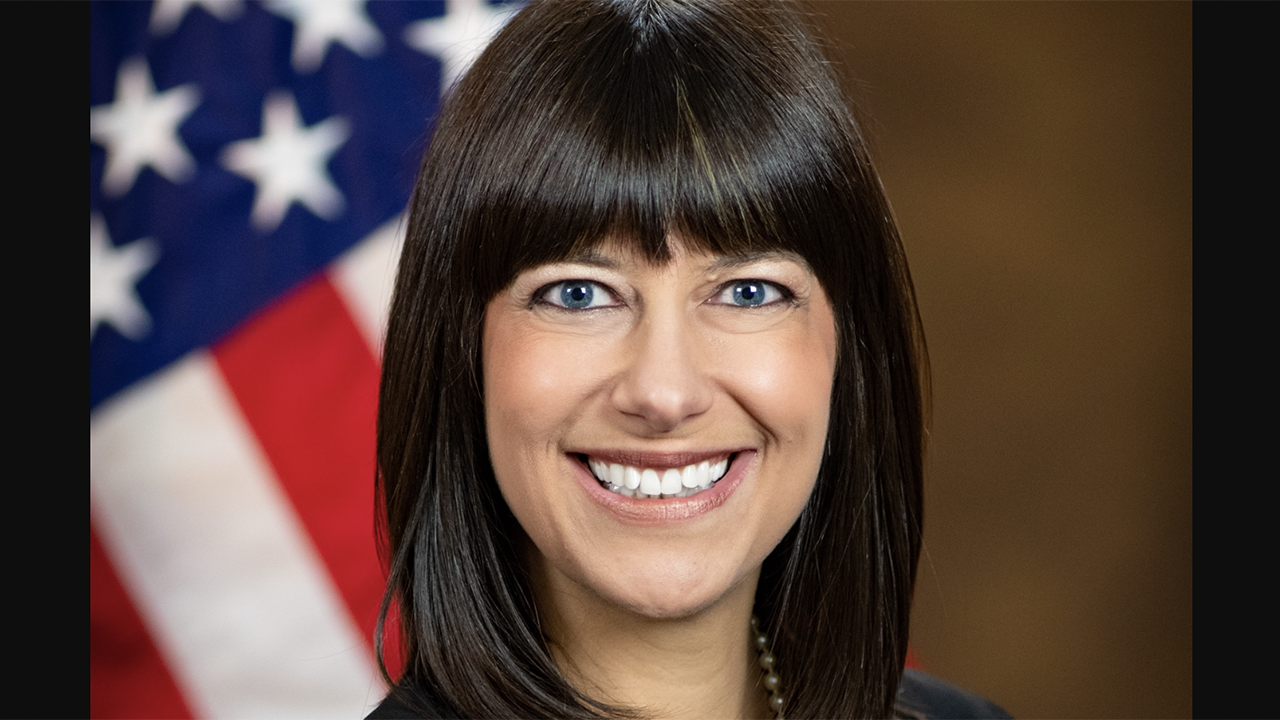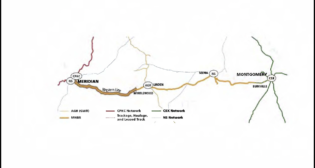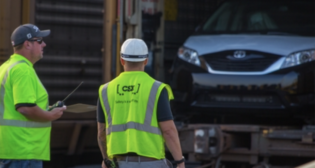
Report: Federal Law Preempts State Crossing Reg, U.S. Solicitor Tells U.S. Supreme Court
Written by Marybeth Luczak, Executive Editor
U.S. Solicitor General
U.S. Solicitor General Elizabeth B. Prelogar has told the Supreme Court of the United States (SCOTUS) that state laws regarding grade crossings are preempted by federal regulation of railroads, according to a Nov. 27 report by FOX19 NOW.
Prelogar wrote in a Nov. 21 brief: “The cumulative effect of disparate state laws regulating blocked grade crossings could require interstate railroads to substantially modify their operations to comply with a patchwork of varying state and local grade-crossing requirements, thereby impeding the flow of interstate commerce,” FOX19 NOW reported.
SCOTUS in March asked Prelogar “to file a brief explaining the federal government’s views after the Ohio Attorney General’s Office and Union County [Ohio] Prosecutor’s Office turned to the nation’s top court in a Union County case involving a stopped CSX train,” according to FOX19 NOW, which noted that SCOTUS “could decide soon” if it will hear the Ohio case regarding the ability of states to regulate blocked highway/rail grade crossings.
The Ohio Supreme Court in 2022 found that the state’s “anti-blocking law” is preempted by the Interstate Commerce Commission Termination Act of 1995, said the media outlet, which covers greater Cincinnati, Ohio and northern Kentucky.
However, Ohio Attorney General Dave Yost requested that SCOTUS overturn the decision “because trains regularly stop in Ohio, jeopardizing public safety,” according the media outlet. “He wants to enforce a state law penalizing railroads if their trains block crossings for more than five minutes since federal law does not specify how long a train can block or stop. The state has accused CSX of violating Ohio’s law five times in Union County in 2018, and CSX fought to have the charges dismissed.”
CSX in court records said, “Ohio’s suggestion that blocked crossings caused by stopped trains constitute a dire public safety crisis is simply wrong,” according the media outlet. “The number of events supposedly attributable to blocked crossings is very low when compared to the large number of grade crossings in the country and the frequency with which they are used. And to the extent that any steps need to be taken to reduce the number and duration of blocked crossings, Congress, the FRA [Federal Railroad Administration] and the railroads would be the appropriate parties to do so, and indeed, are already taking such steps. Lack of conflict, error and urgency aside, this case is a poor vehicle for addressing the questions presented.”
According to the media outlet’s report, a national rail union and labor attorney coalition has asked SCOTUS to hear the case, writing in a filing: “The reason for granting the Petition is simple. If the lower court decision is not overturned, neither a state, nor FRA, would be able to regulate railroad safety.”
Additionally, 19 states, including Indiana, told SCOTUS in their filing: “State anti-blocking laws ‘deter railroad carelessness, ensuring local emergency services, such as firefighters and rescue squads, can quickly respond,” FOX19 NOW reported. “‘Critically, no federal statute or regulation addresses blocked crossings, so without state and local intervention, railroads often become roadblocks to life-saving emergency care—a very real, widespread problem.’”
FRA received reports of 25,374 blocked crossings and 18,801 incidents at 5,773 crossings from December 2019 to September 2021, according to the media outlet.



![“This record growth [in fiscal year 2024’s third quarter] is a direct result of our innovative logistic solutions during supply chain disruptions as shippers focus on diversifying their trade lanes,” Port NOLA President and CEO and New Orleans Public Belt (NOPB) CEO Brandy D. Christian said during a May 2 announcement (Port NOLA Photograph)](https://www.railwayage.com/wp-content/uploads/2024/05/portnola-315x168.png)